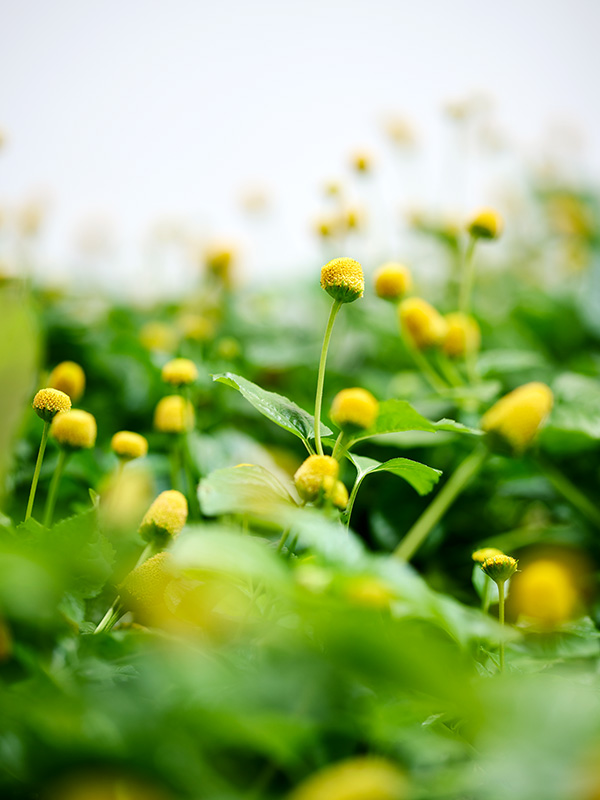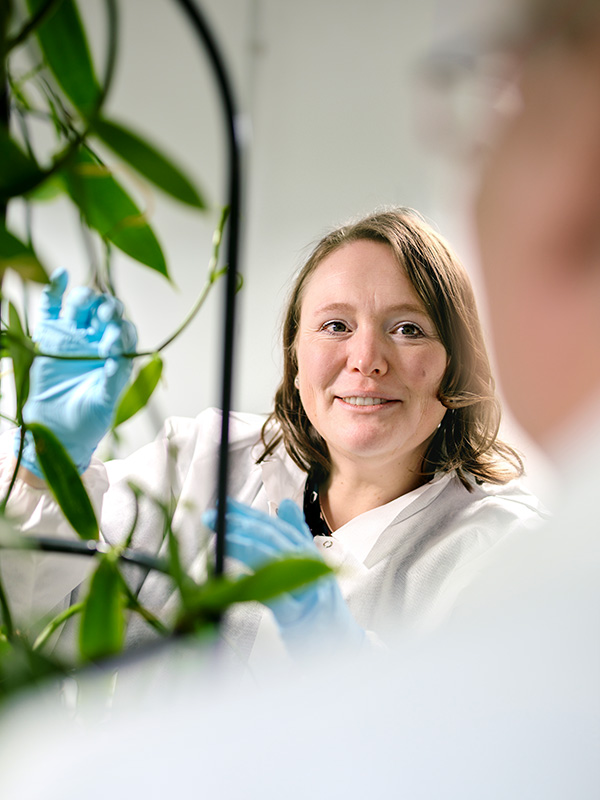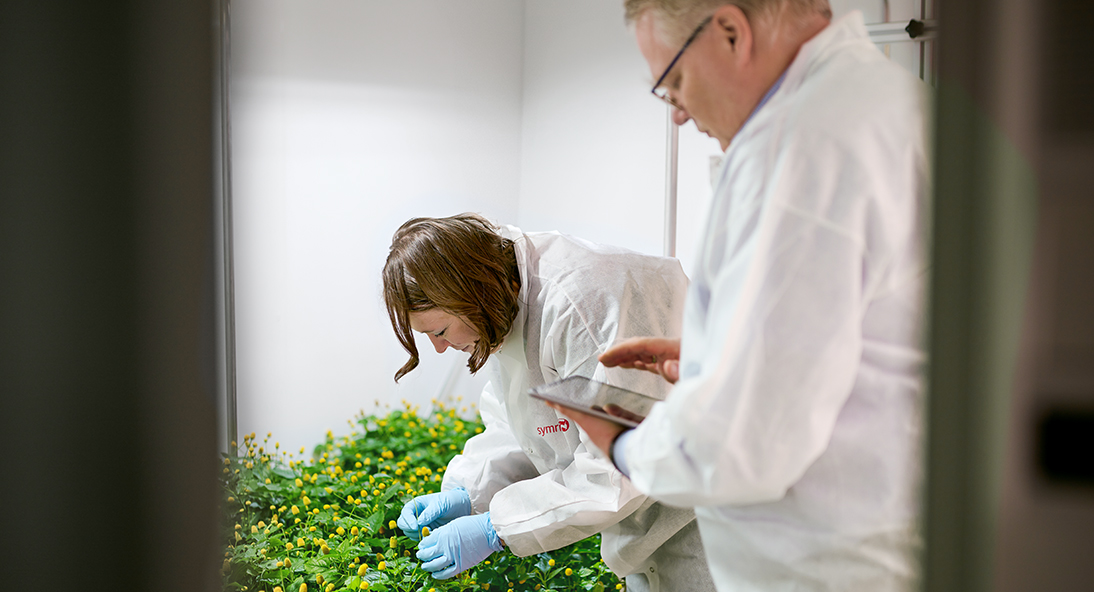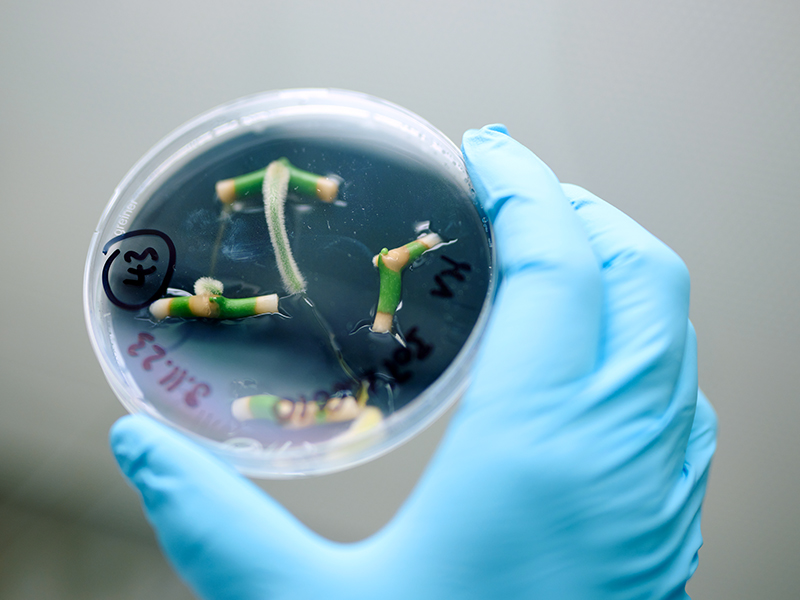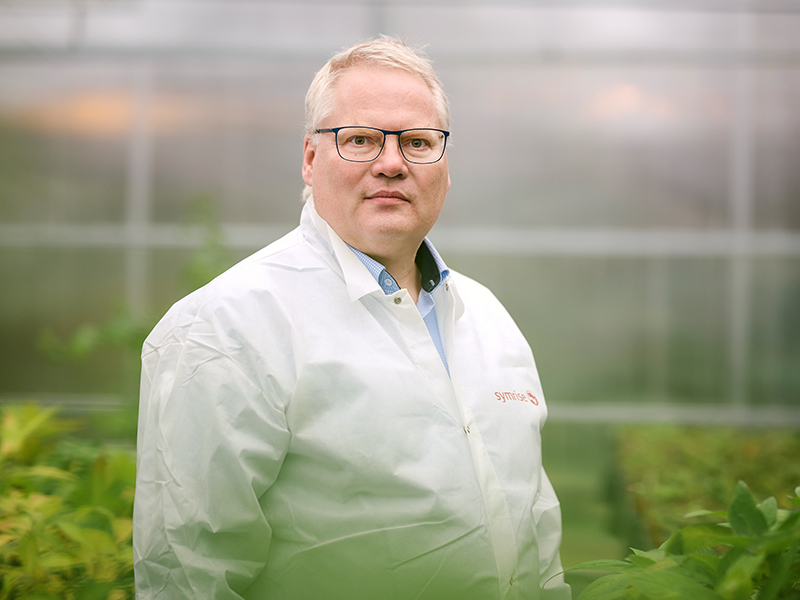Her work shows up in multiple different areas. Symrise has integrated its value chain backward in many places, for example with the vanilla in Madagascar or the onion in the area around Holzminden. “We work closely with the farmers who grow very specific varieties for us in clearly defined qualities at a certain price,” says Esther-Corinna Schwarze. For this to work, Symrise must understand the plants and their cultivation. This applies not only to existing collaborations; in the future too we want to cultivate new plants in which we have a particular interest. So it’s very helpful to have some understanding of the plants and their requirements,” says Esther-Corinna Schwarze. “Then we can pass on our knowledge to the farmers and obtain better results.”
One example of this is paracress, which grows mostly in Brazil where it goes by the name of jambú. “It is used to flavor food, but mostly for medicinal purposes, such as treating toothache,” says Esther-Corinna Schwarze. Paracress has a mild anesthetic effect and makes the mouth tingle. “It could be used, for example, in oral hygiene or to mask unwanted effects in certain foods.” Another objective could also be to cultivate paracress indoors as opposed to in fields in the tropics where it is currently grown. “This is also conceivable in the countries of origin. Then we could achieve a much better quality, cultivate the plants all year round and maybe even harvest multiple times a year,” says Esther-Corinna Schwarze. To this end, she tests different potting soils and substrates, fertilizers and light settings, for example. She analyzes root growth, to accelerate it, and also different harvesting and processing methods. “We test which ingredients we get from fresh or dried components and how they correlate to flowers, leaves and stems.
Indoor farming is of particular importance for Symrise. “It was given a boost in the 2010s as advances in LED technology made the requisite lighting affordable,” says Dr. Jakob Ley. “We have long been working on this and are currently concentrating on around 10 different varieties of plant that previously were hardly ever cultivated or only grow in the tropics,” explains the Director Research Biobased Ingredients. In addition to AgroScience, he is also responsible for four other research areas. “This means that we can farm and analyze more unusual varieties here in Holzminden.”

